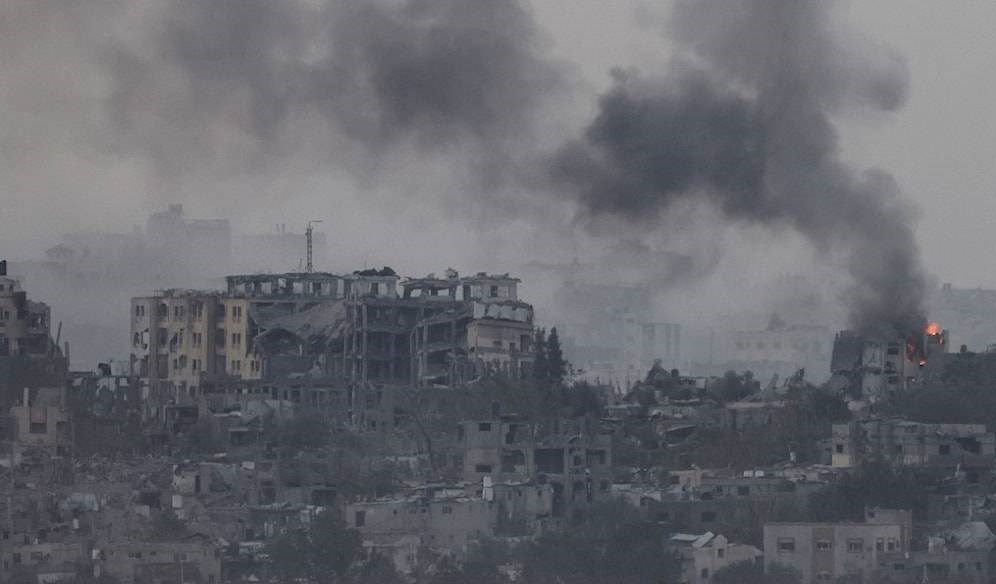Introduction
The recent NATO summit in Washington, DC, has come under scrutiny not just for its pivotal focus on Ukraine’s defense against Russian aggression but also for what it omitted. The absence of any discussion on Gaza has sparked controversy and criticism among some member states and international observers, highlighting a rift in priorities within the alliance.
Concerns Raised by Turkey and Spain
Voices for Humanitarian Focus
Leaders from Turkey and Spain were vocal about their concerns regarding NATO’s silence on the humanitarian crisis in Gaza. They emphasized that NATO’s mandate should encompass global security challenges, including humanitarian crises that extend beyond Europe and North America. This perspective argues for a broader interpretation of NATO’s responsibilities in addressing urgent global issues.
Turkey’s Perspective
Turkey’s representatives stressed the need for NATO to address humanitarian crises worldwide, not just those that threaten its member states directly. They pointed out that ignoring crises like Gaza’s undermines NATO’s credibility as a global security organization committed to humanitarian principles.
Spain’s Stance
Spain echoed Turkey’s sentiments, arguing that NATO’s selective focus could be perceived as neglecting important global issues. They called for a more inclusive agenda that recognizes and addresses humanitarian emergencies wherever they occur.

NATO’s Focus on Ukraine
Priority on Defense and Deterrence
Despite these concerns, the summit’s joint communique and discussions were heavily centered on Ukraine. This reflected a strong consensus among member states to prioritize defense and deterrence in Europe, underscoring NATO’s commitment to collective defense in the face of immediate threats.
Collective Defense Imperatives
NATO officials defended the summit’s agenda, emphasizing that the alliance’s primary responsibility is to protect its member states against military aggression. They reiterated that while NATO is committed to global dialogue and cooperation, its core mandate focuses on the defense and security of its members.
Criticism of NATO’s Selective Approach
Undermining Credibility
Critics argue that NATO’s failure to address the humanitarian crisis in Gaza could undermine its reputation as a comprehensive security organization. They believe that by not addressing global humanitarian issues, NATO risks being seen as selective and inconsistent in its commitments to upholding international humanitarian principles.
Questions About Global Role
The absence of Gaza from NATO’s agenda has sparked broader questions about the alliance’s role in global affairs. Critics contend that NATO must adapt to address a wider range of security challenges, including those related to humanitarian crises, to maintain its relevance and credibility on the global stage.
NATO’s Defense
Mandate Limitations
NATO officials highlighted the limitations of the alliance’s mandate, which primarily focuses on the defense of its member states. They acknowledged the importance of global humanitarian issues but pointed out that NATO’s resources and strategic priorities are geared towards military defense and deterrence.
Commitment to Dialogue
NATO’s representatives emphasized the alliance’s commitment to dialogue and cooperation with global partners to address security challenges. They reiterated that NATO remains open to discussing humanitarian issues in other forums and contexts, even if they are not the primary focus of summit agendas.
Broader Implications
Divisions Among Member States
The controversy over Gaza’s exclusion from NATO discussions highlights broader divisions among member states regarding the alliance’s role and priorities. Some members advocate for a more expansive approach that includes humanitarian crises, while others insist on maintaining a strict focus on military defense.
Balancing Defense and Humanitarian Concerns
This debate underscores the ongoing challenge NATO faces in balancing its core mission of collective defense with the need to address broader humanitarian concerns. As global security challenges evolve, NATO’s agenda-setting process will need to navigate these complex and sometimes conflicting priorities.
Conclusion
While the recent NATO summit made significant strides in addressing Ukraine’s defense against Russian aggression, the absence of discussions on Gaza has sparked a vital debate over NATO’s role in addressing global humanitarian crises. This controversy reflects ongoing divisions among member states and raises important questions about NATO’s evolving mandate and its ability to adapt to complex global challenges. As NATO continues to navigate these issues, the balance between collective defense and broader humanitarian responsibilities will remain a critical aspect of its strategic considerations.








